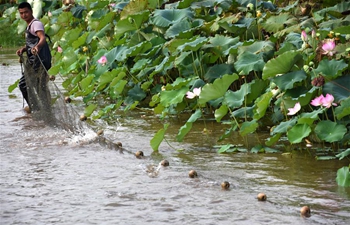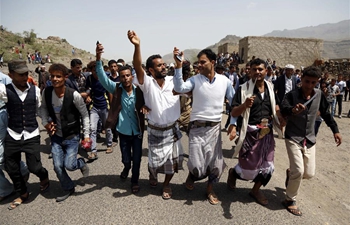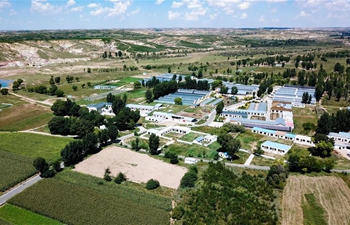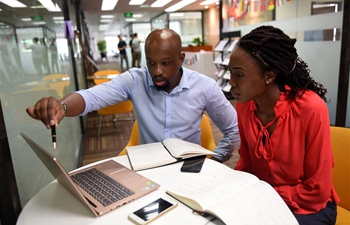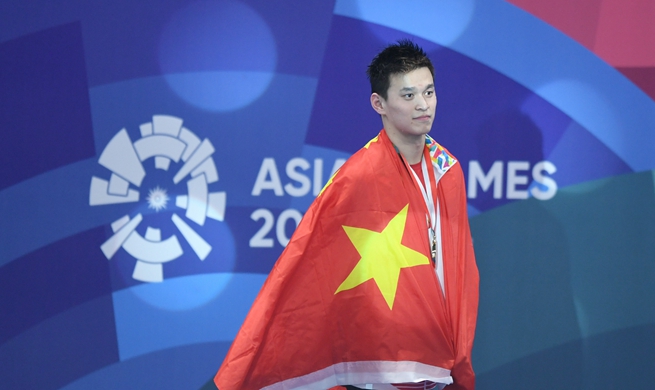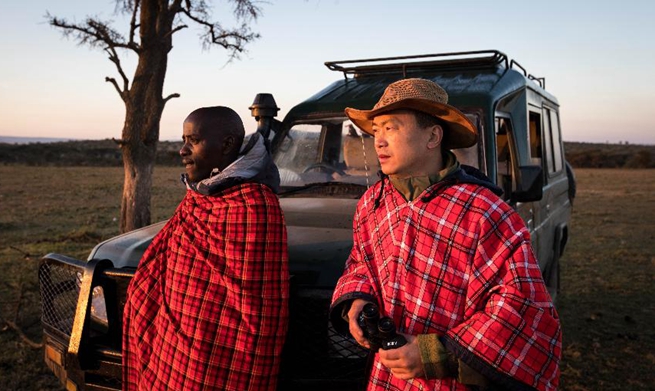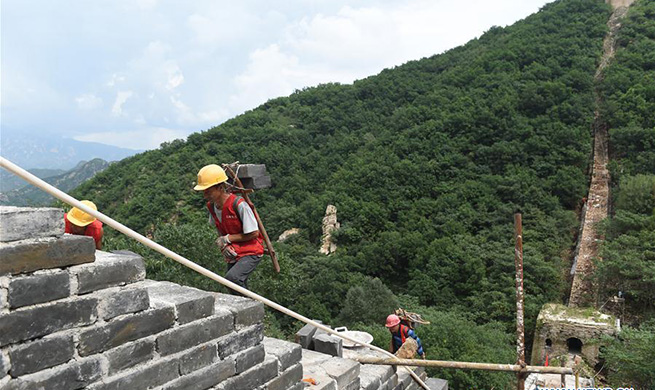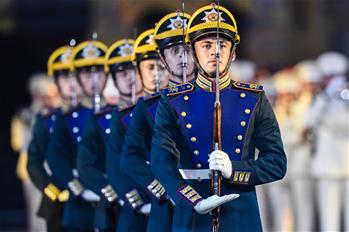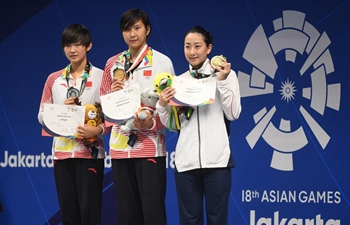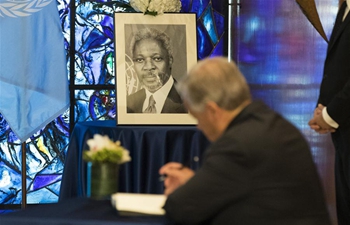BEIJING, Aug. 25 (Xinhuanet) -- A leading research centre in China, the Chongyang Institute for Financial Studies at Renmin University of China (RDCY), has proposed practical steps to improve the relationship between China and the African countries.
In a research paper released on Monday, RDCY praised the Forum on China and Africa Cooperation (FOCAC) as a major instrument through which both China and African countries have achieved a remarkable friendship based on mutual trust and benefit and spelt out several strategies that could help to take the relationship to the next level.
RDCY also noted that the debt profile of African countries needs to be properly managed, as China becomes the continent's largest financing partner and infrastructure builder.
According to RDCY, both parties must devote necessary wisdom to prevent the debt sustainability problems of some African countries from turning into reality, a phenomenon which will damage Africa's macroeconomic stability, undermine the big picture of China-Africa cooperation, and even cause the loss of Chinese funds.
The research institute suggested the establishment of a multilateral debt coordination mechanism under the FOCAC framework, while drawing from the international experience of bodies such as the International Monetary Fund and the Paris Club.
"China and international agencies can also provide technical and capacity support and training for the financial departments of African countries to help them build more effective fiscal management capabilities, properly handle debt problems, and assist the long-term sustainable development of China-Africa cooperation," RDCY said.
As China's trade friction with the United States continues, the think tank pointed out that it is time to explore new grounds for agricultural cooperation with African countries.
Possessing more than half of the world's uncultivated, arable land, Africa is a prime destination for agriculture investment, although the continent continues to struggle with food security due to challenges such as low level of technology capacity and a lack of access to markets, it added.
RDCY noted China has rich experience in agricultural production, especially in farming management and breeding, and has formed some large-scale enterprises with international competency.
The institute suggested the establishment of a "China-Africa Joint Agricultural Development Working Group" which will take in African countries and international organizations with the willingness to participate.
With such a platform, "members can timely share agricultural production forecast data, arrange all the agricultural aid measures to Africa, openly discuss the import and export of agricultural products and coordinate cross-border transportation of agricultural products, so as to improve agricultural productivity in Africa and satisfy the demand of Chinese market for high value-added agricultural products, which is a mutually beneficial and win-win goal," RDCY said.
Also, in order to deepen trust with its African partners, the think thank recommended that China appropriately adjust its strategy in the work of FOCAC to rationally meet the expectation of African partners.
"At the same time, China should attach more importance to the meaning of technical cooperation and capacity cooperation for economic growth, and keep common development as the main topic of the Forum," the research institute said.
Other recommendations include the need to take in African cooperative organizations like the Economic Community of West African States (ECOWAS) and Southern African Development Community (SADC) into the FOCAC framework and the importance of strengthening the cooperation between Chinese and African think tanks for common good and development.
RDCY was established in 2013 as a new style think tank with Chinese characteristics. Since 2014, the institute has appeared in the University of Pennsylvania-led Global Go to Think Tank Index as one of the top 150 think tanks in the world.

